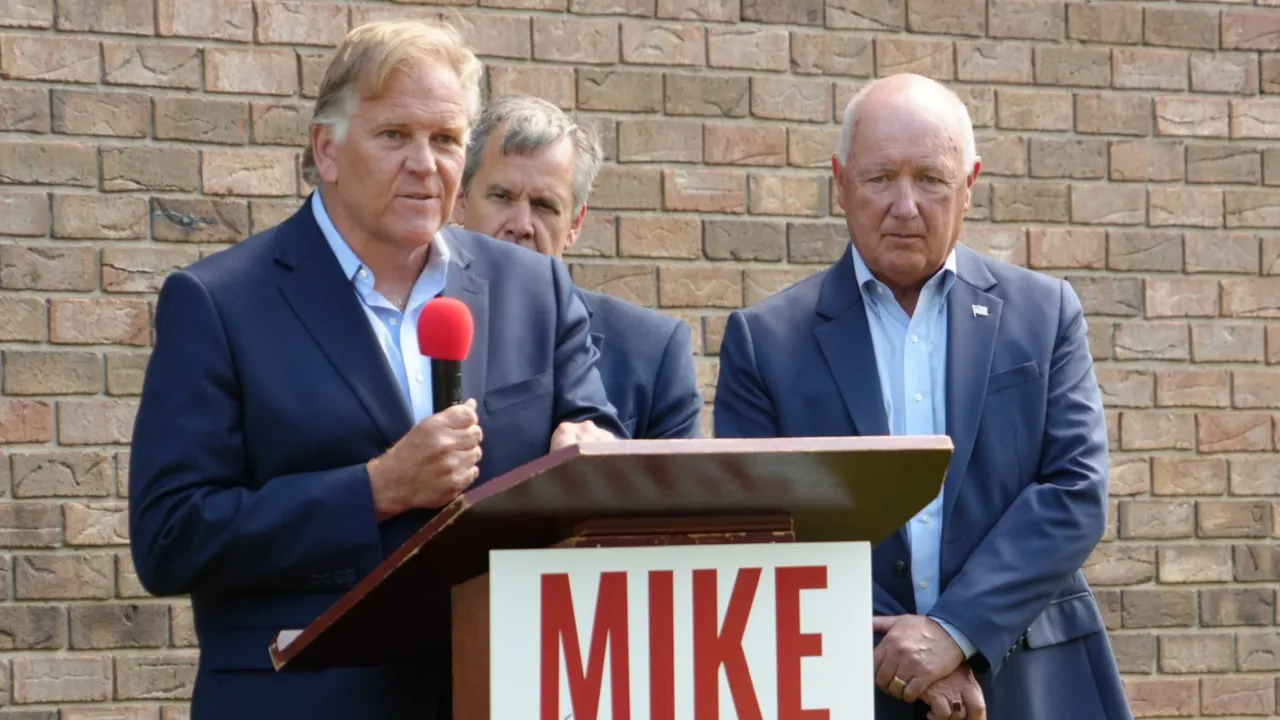Michigan’s Republican nominee for Senate, Mike Rogers, says he’s supported crypto for years, stretching back to the heyday of Silk Road. He’s eagerly engaged with industry watchdogs like Stand With Crypto, and even attended blockchain conferences in person.
And yet, when Fairshake, the colossal pro-crypto super PAC, weighed in on Michigan’s senate race weeks ago, it opted not to support Rogers, but rather his opponent: a Democrat, Elissa Slotkin, who as recently as April held an “F” rating on Stand With Crypto’s website.
“There is nobody more confused than me,” Rogers told Decrypt of Fairshake’s decision to back his adversary with a $3 million ad buy. “I guess the price to go from an ‘F’ to an ‘A’ is $3 million.”
Fairshake, which is funded primarily by crypto heavyweights Coinbase, Ripple, and VC firm Andreesen Horowitz, is handily the biggest special interest force in the 2024 election, with more than $276 million raised this cycle.
Much speculation has swirled since the PAC opted to throw its weight behind multiple Democrats in key battleground states with limited crypto credentials—who, in several cases similar to Michigan’s Senate race, are facing off against emphatically pro-industry Republicans like Rogers.
But it appears increasingly clear that the companies at the heart of crypto’s political push are hesitant to align too closely with Republicans, no matter how eager Republicans are to align with them.
When Stand With Crypto—which was launched by Coinbase—announced its first slate of political endorsements on Friday, it carefully chose a near-even split of 20 Republican candidates and 19 Democrats. The organization refrained from endorsing either candidate in Michigan’s Senate rate, which could determine control of Congress.
“What we kept hearing was: ‘They needed a Democrat, they needed a Democrat, they needed a Democrat,’” Rogers said of Fairshake’s decision to back Slotkin.
Fairshake declined to comment for this story. An industry insider familiar with the situation, though, told Decrypt that Slotkin's willingness in May to split with her party and President Joe Biden on two key crypto-related votes is what put her over the edge. The source elaborated that while Rogers, a former congressman and FBI agent, may be pro-crypto, he has never voted on the issue, nor has he demonstrated a willingness to cross party lines because of it.
"That's how you build a long-term, sustainable, bipartisan coalition behind crypto and blockchain," the source, who requested anonymity to speak candidly, said of Fairshake's choice to back Slotkin.
Rogers says the industry PAC’s choice to throw millions of dollars behind Democrats like Slotkin makes no sense to him and is “not very strategic.”
“I think I would have gone with the guy who’s been there the whole time—and who, by the way, has a law enforcement background that could be very useful when all of the debates happen about how bad crypto can be for criminals and all of that nonsense,” he said.
The Senate candidate attributes Democrats’ change in tune on crypto wholly to the recent emergence of massive industry super PACs like Fairshake. They’re just following the money, Rogers says—and that isn’t sustainable, especially if Democrats win Congress.
“That's just an awful, terrible way to make policy,” he said. “I think you'll get a slow roll with [Democrats] at the very best. And I think at the very least, you'll have folks who are chairs of important committees who aren't for crypto.”
But Rogers says he isn’t bitter—he will continue to support the industry, even if its biggest players supplied millions of dollars to thwart him. On Monday, five weeks out from Election Day, the candidate took time off the busy campaign trail to fly to New York, where he appeared on a panel at Messari’s annual Mainnet crypto conference.
The conference was a welcome opportunity to discuss crypto’s future—a topic Rogers says voters rarely ask about back home in Michigan.
“It doesn't come up a lot,” Rogers said of crypto.
Edited by Andrew Hayward





